Gracious reader,
This weekend I attended the Global Free Speech Summit at Vanderbilt University, hosted by The Future of Free Speech. It was a gathering that reminded me why freedom of expression is not merely a political right—it is a moral responsibility, and a precondition for civilization itself.
I was moved to see so many old friends and new ones gathered in common cause.

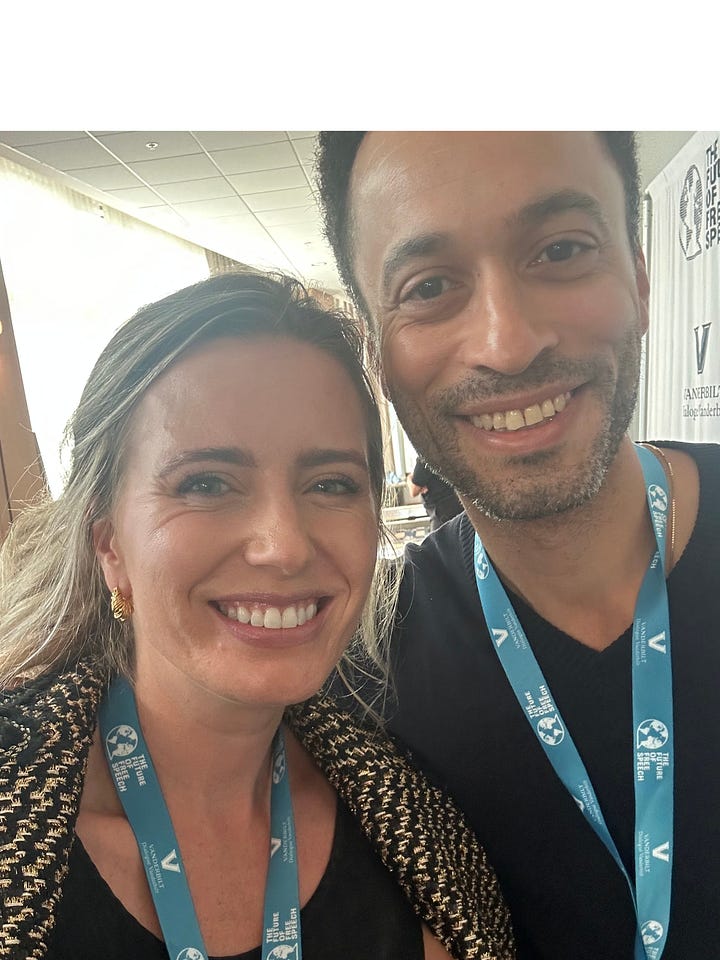
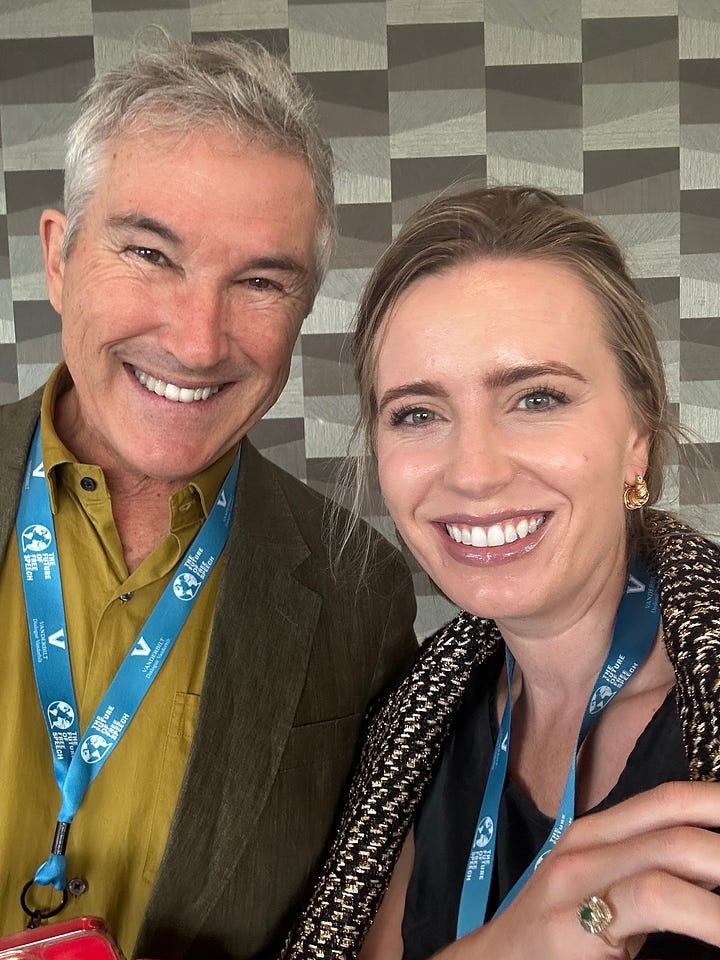
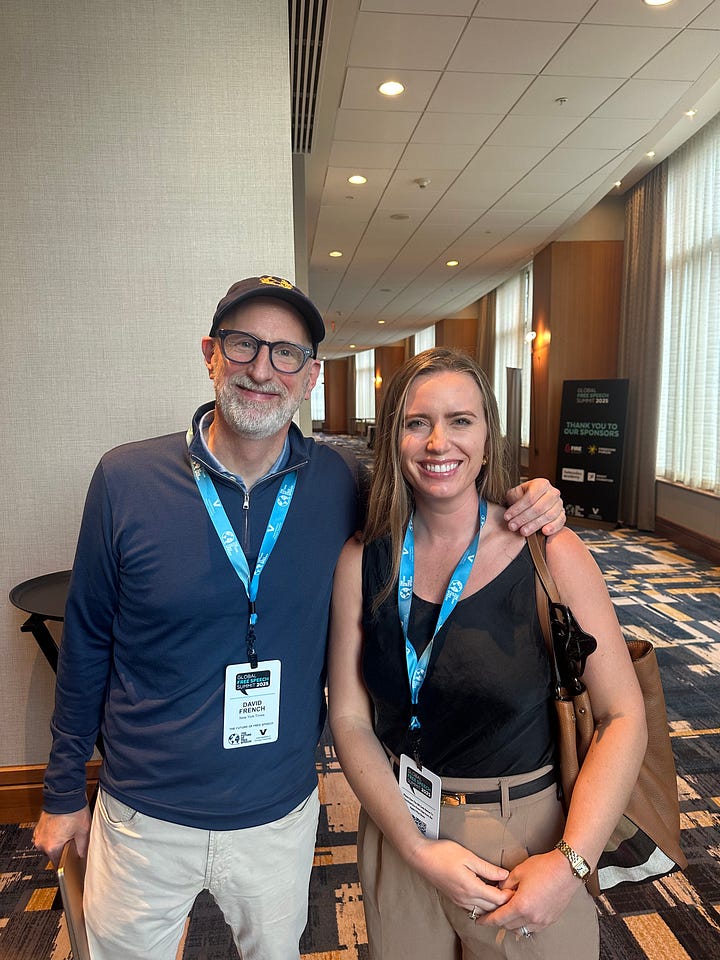
But most of all, I was struck by the global voices—those who risk everything to say what we in freer societies too often take for granted.
A few moments in particular have stayed with me.
A woman from Afghanistan, speaking to us via a pixelated Zoom connection, described how she is quietly building underground micro schools for women and girls—illegal under Taliban rule. She could be imprisoned, even killed, for this act of courage. When asked what message she would give to the Taliban if they were listening, she laughed wryly, paused, and said:
“If they are listening, I want to tell them that they cannot have a future without women. By cutting half their population off from resources and education, they doom themselves.”
Her words landed with the quiet gravity of truth.
Another speaker—a comedian from Sri Lanka—recounted how she was interrogated for twenty hours and imprisoned for thirty-nine days. Her “crime”? Telling a joke—while being a woman.
What astonished me most was her response.
“Even though my own government tried to silence me,” she said, “my answer is to never silence anyone else—ever.”
She refuses to censor, even those who send her hate mail, threatening her with rape and death for daring to share her story.
Not all of us possess her patience, her fortitude, or her principled commitment to free speech. Yet it is striking how often those who have suffered the greatest violations of expression become its fiercest defenders—how those who have felt the lash of tyranny are least willing to wield it against others.
These stories jarred the room into silence. They remind us how easy it is to forget the privilege of saying what we think. Yes, our own public square is fraught; the culture wars feel exhausting, and civility can feel out of reach. But compared to those who speak under threat of imprisonment—or even death—for expressing dissenting views, our conflicts are a luxury of freedom.
The Antinomies of Liberalism: The Paradox of Free Speech, and Why Liberty Requires Restraint
The Sri Lankan comedian’s courage revealed a deeper paradox at the heart of freedom itself: that liberty endures only when it is governed by conscience—when we choose restraint even as we are entitled to release.
In The Soul of Civility, I write that in our own culture, the precious right of free expression is sustained by our discretion in how we use it. The cause of free speech is not furthered by saying the most vicious, vulgar, or hateful things imaginable simply because we can. It is advanced by the self-discipline not to. In short, with rights come responsibilities to use our rights well.
Freedom requires self-government; free speech requires self-restraint.
The sociologist Edward Shils called this the antinomies of liberalism: within a free society, we possess the freedom to undermine freedom itself. It is a paradox that too many ignore. When citizens use their liberty irresponsibly—when speech is weaponized to humiliate, inflame, or degrade—the public grows weary of freedom and begins to welcome its curtailment.
Paradoxically, the best way to defend free speech is to practice civility. Not censorship, but character. Not coercion, but conscience. The exercise of restraint—choosing when not to speak, and how to speak when we must—is what keeps the fragile ecosystem of liberty alive.
We are reminded by those who suffer under tyranny that speech is sacred. But we must also remember, in our relative comfort, that speech is sacred because it can desecrate. The choice between those two is ours, every day.
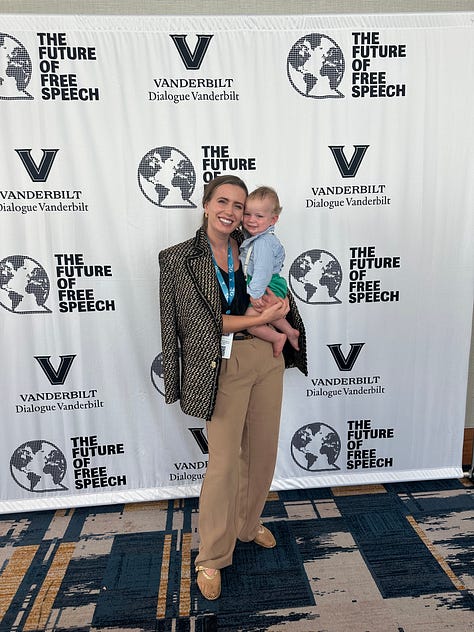

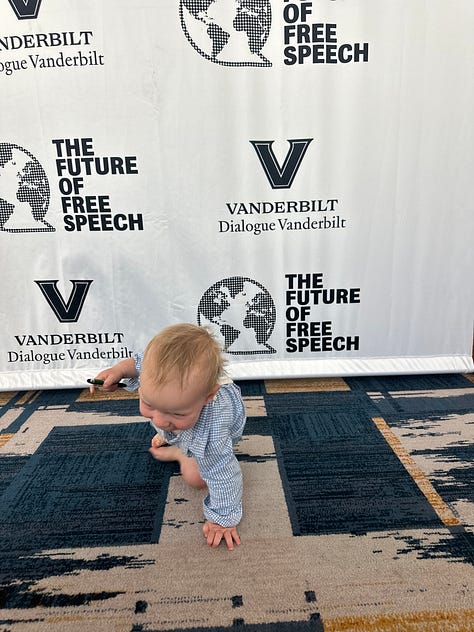
Civic Renaissance Ambassador Program
Wherever you are—whether you want to start a book circle with friends, convene leaders in your workplace, or bring a full Civility Summit to your city—there’s a place for you in this movement.
👉We’d love to hear from you! If you’re interested in learning more about how to revive civility and foster transformation in your workplace, school, or community, please sign up using this form, and we’ll be in touch with more information.
In the news:
Carmel civility summit offers hope amid era of political violence
Indiana to Host Inaugural National Civility Summit in Carmel
Year Ago on Civic Renaissance:
The Architecture of Civilization
Thank you for being part of our Civic Renaissance community!


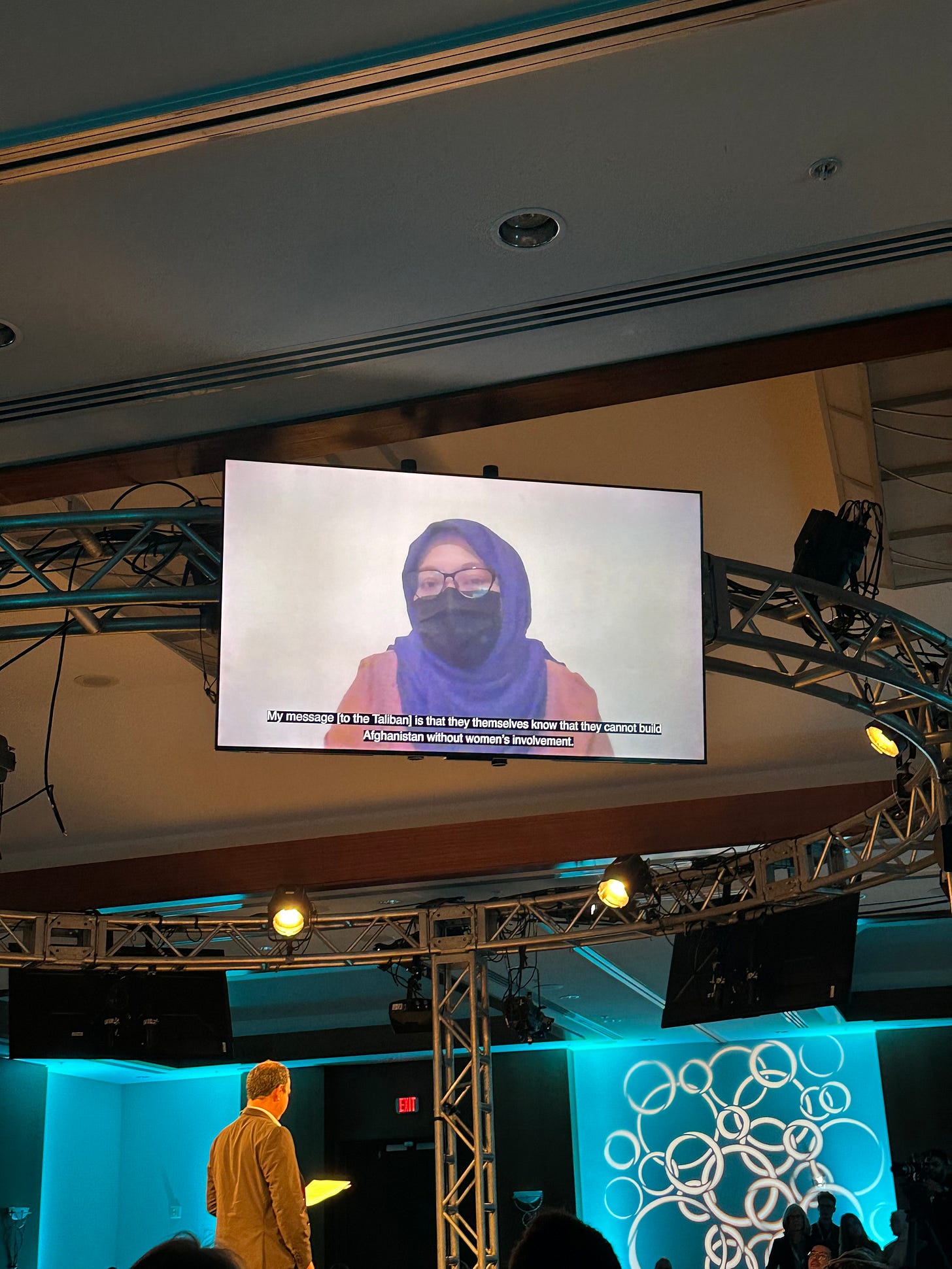
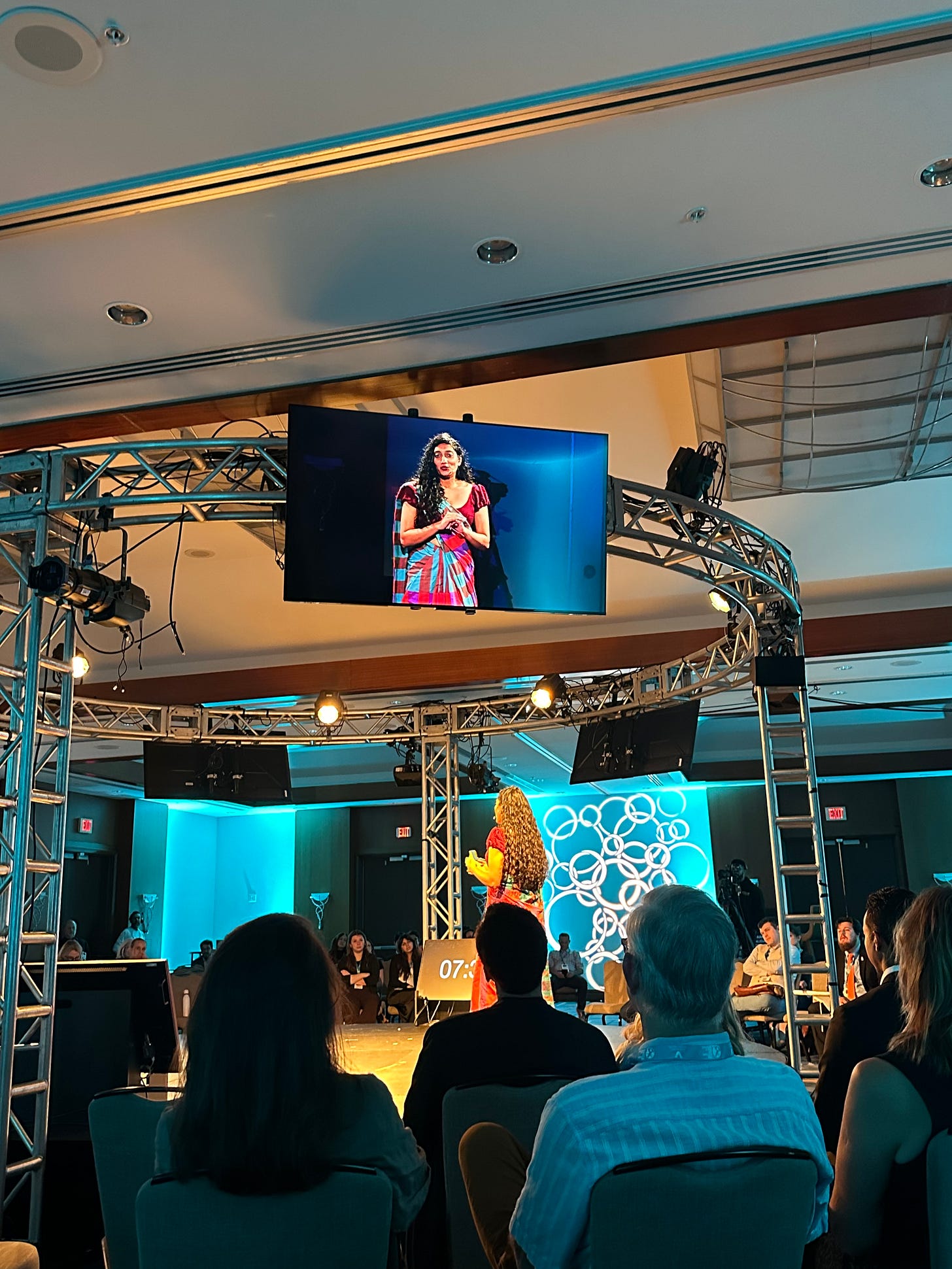


You said in a few sentences in this newsletter what I have been trying to form into words for years: "When citizens use their liberty irresponsibly—when speech is weaponized to humiliate, inflame, or degrade—the public grows weary of freedom and begins to welcome its curtailment."
Thank you!
And thank you for continuing to advocate for civility and for teaching us both its importance and meaning.
I just casually dropped a comment on an Aaron Parnus video on tiktok, only to learn it was allowed, and the video was taken down. He was reporting about the CBS change of leadership and gave no bias to any side. Crazy how fast this timeline is moving for the Western world.